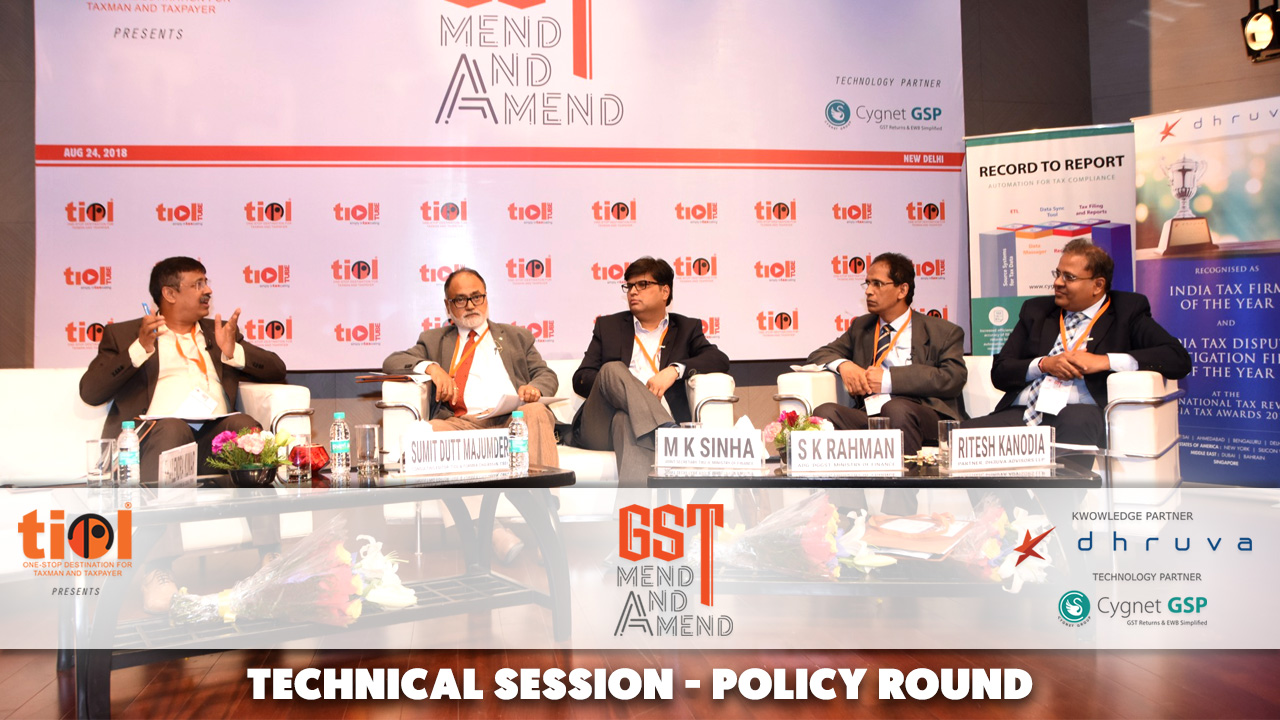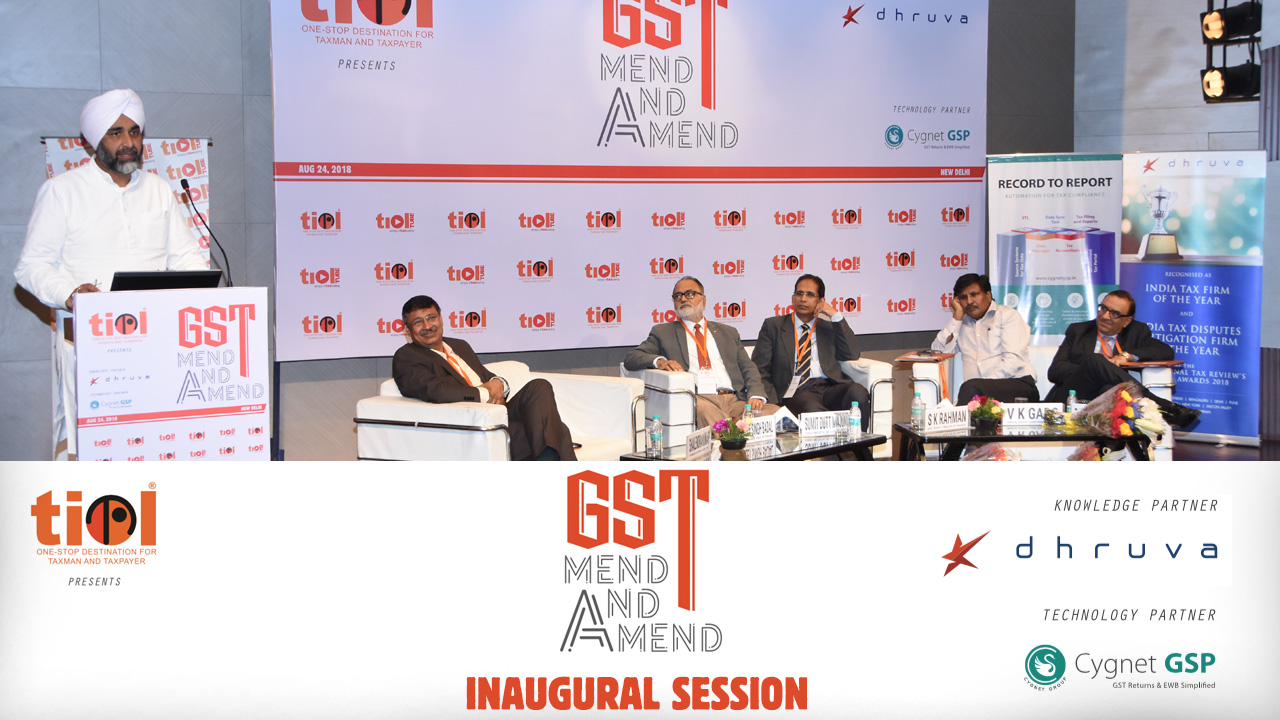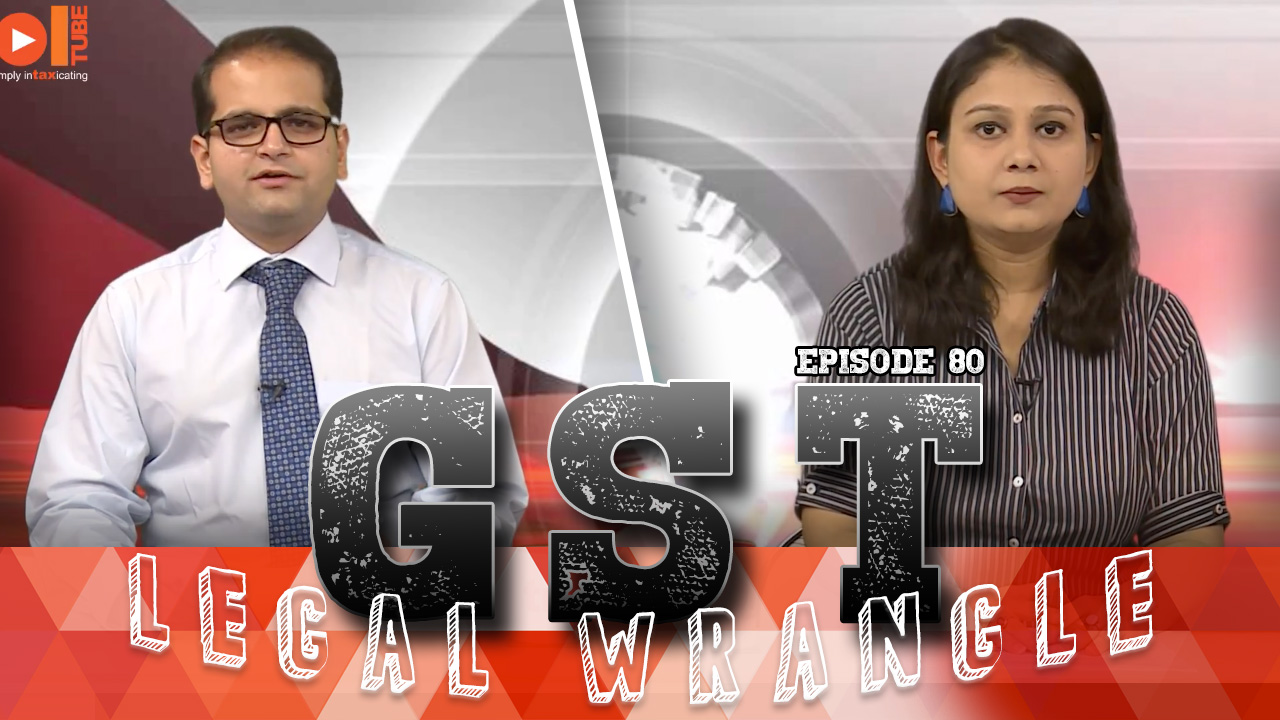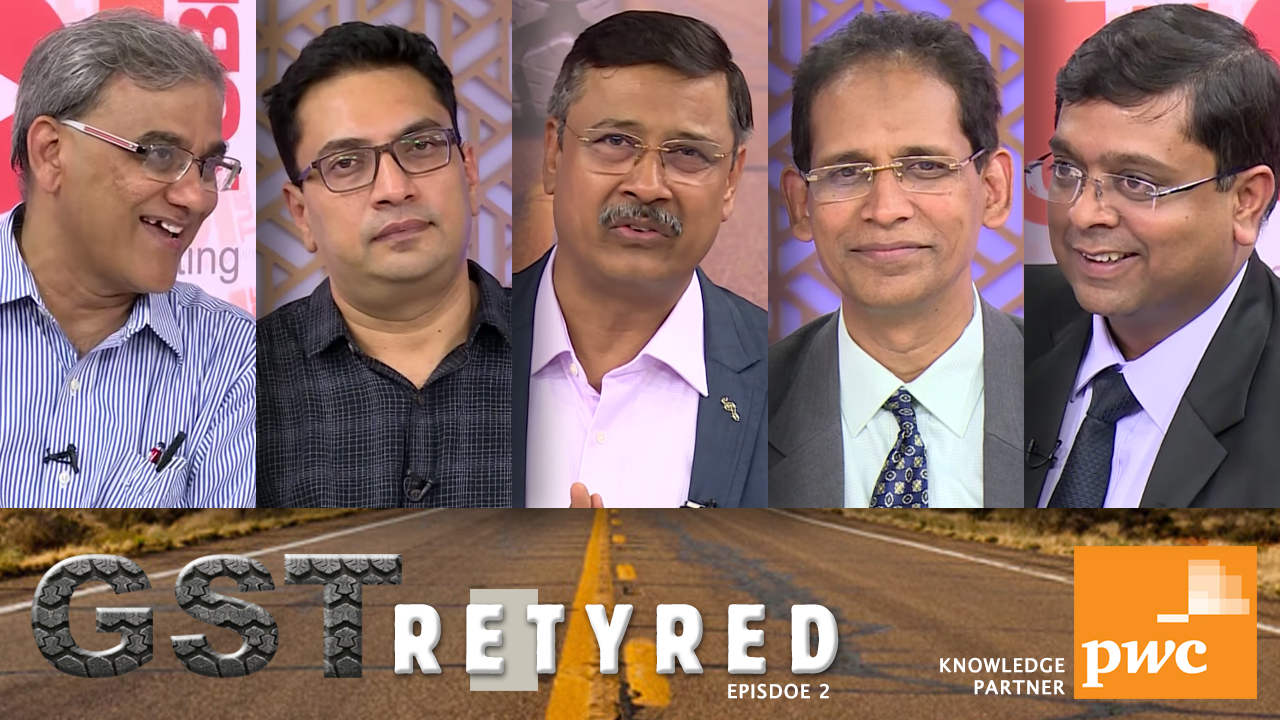|
SERVICE TAX
2018-TIOL-1746-HC-DEL-ST
National Institute of Public Finance and Policy Vs CST
ST - The assessee is a registered society set up by Ministry of Finance, Planning Commission, several State Governments and distinguished academicians as a centre for research in public economics and policies - Concededly, at the relevant time service tax was not payable for any of the work undertaken by assessee - Under a wrong impression that it was liable to service tax, the assessee was levied certain amounts - Subsequently, upon inquiry, it was informed by CBEC that its activities were not taxable - Soon thereafter, it sought refund of amounts deposited which was partly allowed - Tribunal clearly fell into error - In the present case, levy never applied – a fact conceded by no less than the authority of CBEC - In these circumstances, the general principle alluded to in Krishna Carbon Paper Co. 2002-TIOL-390-SC-CX would apply - Consequently, assessee shall be entitled to refund of entire amount with proportionate interest: HC
- Appeal allowed
: DELHI HIGH COURT
2018-TIOL-2656-CESTAT-MAD
International Travel House Ltd Vs CST
ST - Assessee was issued Show Cause Notice proposing to demand service tax under under "Rent a Cab Services" and "Air Travel Agency Services" - On perusal of ST-3 returns, it was noticed in audit that assessee had not paid service tax on Parking charges which their travel desk had collected from customers who were provided with Rent-a-Cab Services, Service charges which they received from their travel division (IATA agent) for booking air tickets for clients staying at the hotel and Commission received from travel division for booking air tickets on behalf of service provider - Assessee has explained that transaction of booking air tickets at the travel desk of company does not amount to rendering of air travel agency services - The guest staying in hotel approaches the travel desk for booking air tickets, which is forwarded to their travel division - The travel division undertakes the booking of air tickets - The travel division raises invoice charging service tax on basic fare which is forwarded to travel desk - The bills raised at travel desk includes the value of inter-division services along with service tax and service charges - Since service tax on basic fare is being discharged by travel division of assessee company under Air Travel Agency Services, the demand on assessee treating these two divisions as separate entities is incorrect - Demand of service tax is without any factual or legal basis and set aside - In regard to parking services, it is brought out from the submissions that while providing the Rent a Cab Service, assessee collects cost of parking charges also - This is in the nature of reimbursable expenses and therefore cannot be subject to levy of service tax, as decided in case of M/s.Intercontinental Consultants and Technocrats Pvt Ltd. 2018-TIOL-76-SC-ST - Following the same, demand cannot sustain, same is set aside: CESTAT
- Appeal allowed: CHENNAI CESTAT
2018-TIOL-2655-CESTAT-MAD
Srivari Enterprises Vs CST
ST - M/s. Srivari Enterprises, a proprietary concern was functioning as outsourcing agency for banks/ financial institutions namely ICICI Bank, ICICI Home Finance Company Ltd., HDFC Bank, Countrywide and ING Vysya Bank since 2001 - Shri V. Vasudevan is the sole proprietor of M/s. Srivari Enterprises - Based on intelligence, that assessee was not discharging service tax liability on activities which fall under BAS, SCNs were issued which after adjudication culminated in confirmation of demand along with interest and also penalties imposed under section 76 besides equal penalty of Rs. One crore under section 78 of FA, 1994 - The activity of assessee is not solely or merely verification of credentials of prospective customers but they were also engaged in other activities like preparation of invoices / Bills, collection / recovery of installments from defaulters / borrowers of the bank - These activities are nothing but providing incidental or auxiliary services to HDFC Bank in collecting the overdue installments from the customers of HDFC and would definitely fall within the ambit of Section 65 (19)(iv) of Finance Act prior to 10.09.1994 and Section 65 (19) (vii) after 10.09.2004 - The scope of incidental or auxiliary support service as enacted in 65 (19) (iv) /65(19)(vii) is given in nature of inclusive definition and only example of type of activity that would come within that category having listed therein - The collection of overdue installments and other outstanding payments from customers of HDFC very clearly fall within the genre of examples given in Section 65 (19) (iv)/Section 65 (19) (vii) - The activities of assessee would constitute BAS during the period of dispute and not recovery agent's service as argued by assessee - As seen from SCN, assessee had been providing these services from the period from which BAS was brought into the tax net, i.e. w.e.f. 01.07.2003 - However, they did not discharge service tax and had suppressed the value of such services with intent to evae tax - It is also noted that even after taking registration on 02.04.2004, assessee did not pay service tax or file returns disclosing the value of these services provided by them - Therefore, there is no infirmity in invocation of extended period by department to demand the tax liability evaded by assessee: CESTAT
- Appeal dismissed: CHENNAI CESTAT
CENTRAL EXCISE
2018-TIOL-1747-HC-MAD-CX
Anglo French Textiles Vs CESTAT
CX - Issue arises for consideration is; whether, arising from the same set of facts, the Department is entitled to raise two SCNs, one within the period of limitation of one year and the other beyond the period of limitation on the allegations of clandestine removal and suppression by assessee - Admittedly, the first SCN emanated from inspection and special stock taking - Thus, entire materials were available with Commissioner and what the Commissioner proposed was to confiscate the seized goods and levy penalty under Rule 173Q of CER, 1944 - The Commissioner adjudicated the matter and accepted the stand taken by assessee that the excess goods were still lying in factory premises, that there was no evidence that they were likely to be cleared clandestinely and that there was no justification for confiscation of goods, as the same were required to be released to assessee - Commissioner of Central Excise dropped the proposal to confiscate and directed the seized goods to be released with a direction to be properly accounted for in RG-1 register and also imposed a penalty of Rs.10,000/- for not maintaining RG-1 register - However, within two months, the second SCN was issued proposing to demand excise duty, levy penalty and demand interest - The Authority was not justified in doing so in the absence of fresh materials for issuance of second SCN - If, in the opinion of Assessing Officer, the facts only require a proposal to confiscate and impose penalty, later on, another Authority cannot turn around and state, on the same set of facts, that he would proceed to demand duty from the assessee on the ground of stock differences - The Officer, who proposed to initiate the proceedings against assessee, had full and complete material before him and in his opinion, he thought fit to issue first SCN proposing confiscation and impose penalty and ultimately, dropped the proposal and imposed only a fine of Rs.10,000/- for not proper maintenance of records - Therefore, the second O-I-O, which was impugned before Tribunal, is, in fact, an order reviewing the earlier decision, which is impermissible under the provisions of the Act - Therefore, substantial question of law is answered in favour of assessee holding that the second SCN could not have been issued on same set of facts - For such a reason, assessee is entitled to succeed in this appeal: HC - Misc appeal allowed
:
MADRAS
HIGH COURT
2018-TIOL-2654-CESTAT-MAD
Rite Steel Industries Pvt Ltd Vs CCE
CX - The assessee is engaged in the manufacturing activity of TMT Bars and Rods - It availed Cenvat credit on the input services - However, the Revenue opined that the services provided were in the nature of construction service, and were not used in manufacturing of final products -Duty demand was raised - However, the adjudicating authority opined that assessee should not be penalized on grounds that the assessee had reversed the Cenvat credit immediately after it was brought to their notice as to the wrong availment of Cenvat credit - Further, it observed that the services pertaining to 'modernization, renovation or repairs of a factory' qualified as input services under the inclusive clause of the definition under Rule 2 (l) of the CCR, 2004 - On appeal, the Commr. (A) set aside the order-in-original and ordered in favour of the Revenue.
Held: It is a case of bona fide mistake on part of the assesse - Therefore, no penalty is leviable - In the order-in-appeal, the Revenue has not taken into account the bona fide of the assessee in wrongful availment of Cenvat credit nor has he suspected the act of reversal of such credit availed before issuance of SCN - Numerous judgments of the Apex Court wherein it has repeatedly held that no penalty is imposable in such cases - Hence, the order challenged is set aside : CESTAT (para 1, 7, 8)
- Appeal Allowed: CHENNAI CESTAT
2018-TIOL-2653-CESTAT-MAD
Harita Nti Ltd Vs CCE
CX - Assessee is manufacturer of Zerust VCI based packing materials of poly propylene/polyurethane in the form of films and bags - They were carrying out their trading activity within the manufacturing premises itself - The assessee was importing Axxanol 33C which is classifiable under heading 38119000 under Customs Tariff Act, 1985 - It appeared that assessee produce the products namely Axxanol 33CD and Axxanol 33 by reducing concentration of Axxanol 33C using locally purchased lab ethanol; that the resultant products are classifiable under Chapter Heading 38112900 of CETA, 1985 - While the assessee imported the Axxanol 33C in 208 litres drums, the product Axxanol 33CD made out of Axxanol 33C was marketed in 35 litres/208 litres drums, and sold under a separate set of trading invoices indicating that the products are "non-excisable" - According to department, the process carried out by assessee for making Axxanol 33CD from Axxanol 33C amounts to manufacture in terms of Note No.9 - The product is used as rust preventive coating and depending on requirement of consumer the product is therefore either sold directly in imported form or is diluted and sold in concentration of 1:9, 1:24 and 1:49 and thereafter sold - The functionality of Axxanol product remains the same irrespective of dilution that it has undergone namely to protect the components or items treated from rust prevention - Chapter Note 9 is being needlessly stretched in this case by department and in impugned order in an attempt to bring the diluted Axxanol within the scope of product "manufactured" by assessee - It is also to be noted that the imported Axxanol came in 208 litres drums and diluted Axxanol also was sold in cans/drums either of 208 litres or 35 litres, depending on requirement of consumer - In any case as found by adjudicating authority himself, the consumers of assessee were industrial consumers only and hence the packing, either in same quantity of 208 litres as was imported or even in the 35 litres cans/drums can only be termed "industrial packing / bulk pack" and not as a retail pack - Period of dispute in this case was May 2004 to March 2009 - Upto 1.3.2008, Chapter Note 9 had featured conjunction "and" to indicate that processes of manufacture would include "the processes of labelling or relabeling of containers and repacking from bulk packs to retail packs" - By Notfn 11/2008-CE(NT), the said conjunction "and" was replaced by "or" - However, the processes carried out by assessee in this case will not attract the mischief of Chapter Note 9 before or after 1.3.2008 - Impugned order set aside: CESTAT
- Appeal allowed: CHENNAI CESTAT
CUSTOMS
NOTIFICATION
dgft_trade_notice_27_2018
Acceptance of new format for IEC
CASE LAWS
2018-TIOL-1748-HC-DEL-CUS + Case Story
Allied Icd Services Ltd Vs UoI
Cus - "Fee" is regarded as a sort of return for services rendered - Cost recovery charges were intended to cover the expense of the government in deputing Customs personnel to the ICDs/CFSs/ACCs/EPZs - Quid pro quo is established and cannot be doubted - petitioners had undertaken to bear the costs of customs officers posted at the ICDs/CFSs/ACCs/EPZs as a pre-condition for appointment as a custodian under Section 45(1) of the Act - payment of cost recovery charges has sanction and authority of law to back the levy and imposition - It is in terms of Section 45 of the Act and Regulation 5 (2) of Handling of Cargo in Customs Area Regulations, 2009, that the circular dated 14th December, 1995 and the impugned letter of the Ministry of Finance dated 1st April, 1991 have been issued: High Court [para 13, 16, 17, 18, 20, 21, 22]
Cus - Quantum of 'fee' - Validity of recovery of cost computed at the rate of 1.85 times the salary of the customs officers posted - Actual cost cannot be restricted and confined to salary paid - There are hidden and other expenses involved - It would be unfair and wrong to compute cost by merely adding the wage or salary actually paid to the custom staff deployed - This is not the actual cost incurred and the cost to the government - The cost factor was worked out on the basis of principles under the General Financial Rules 112 and 113 - If the revision in cost due to implementation of the 6th Pay Commission was not carried out, then the government would have suffered a net loss and would have tantamounted and resulted in profiting of the private sector at the expense of the government - no case is made out for the grant of the reliefs as prayed for - Writ Petitions are dismissed: High Court [para 25, 26, 27, 28, 30]
- Petitions dismissed: DELHI HIGH COURT
2018-TIOL-2652-CESTAT-MAD Cherish Knits Vs CC
Cus - The assessee is manufacturer and exporter of woven and knitted fabrics - During period February to October, 2009, they had exported readymade garments under various shipping bills and claimed drawback at all industry rates - Pursuant to investigation by DRI, it emerged that in respect of certain exports, assessee had not received the export proceeds in foreign exchange - Accordingly, SCN was issued to assessee proposing recovery of alleged ineligible drawback amount - Section 75A ibid particularly makes it amply clear that when drawback becomes recoverable under the Act or Rules made therein, claimant shall be liable not only to repay the drawback amount but also to discharge interest liability at the rate fixed under section 28AA of the Customs Act - This is also the ratio laid down by jurisdictional High Court in CPS Textiles (P) Ltd. 2010-TIOL-183-HC-MAD-CUS - Following the said judgment, no merit found in the appeal filed by assessee in respect of interest liability: CESTAT
- Appeal dismissed: CHENNAI CESTAT
2018-TIOL-2651-CESTAT-ALL
Ainul Khan Vs CC
Cus - Assessee was 'G' card holder employee of CHA firm M/s Shivam Airways Pvt. Ltd. - The CHA firm was engaged by M/s Baba Balaknath & Co., for export of goods from ICD, Dadri - Same CHA firm was also engaged by M/s Kalinga Overseas (Delhi) India for attaining on export from ICD, Dadri - On examination, it was found that the goods attempted to be exported were used worn out clothes of assorted fabrics different than the goods described in said Shipping Bills as Polyster ladies Scarf - The assessee was 'G' card holder employee of CHA firm and he had prepared documents in his office and as per the directions of his Managing Director and even the Customs Authority had given 'Let Export Order' and after 'Let Export Order' the goods were found to be other than the description mentioned in shipping bill - Therefore, it is not established by Revenue that assessee had prior knowledge of mis-declaration of goods - The Customs Authorities allowed 'Let Export Order' on the basis of documents - In similar manner, assessee also prepared documents on the basis of information given to him - Therefore, it is not established that assessee either connived or abated in offence allegedly committed by exporter - Therefore, penalties imposed on assessee set aside: CESTAT
- Appeals allowed: ALLAHABAD CESTAT
|
|








